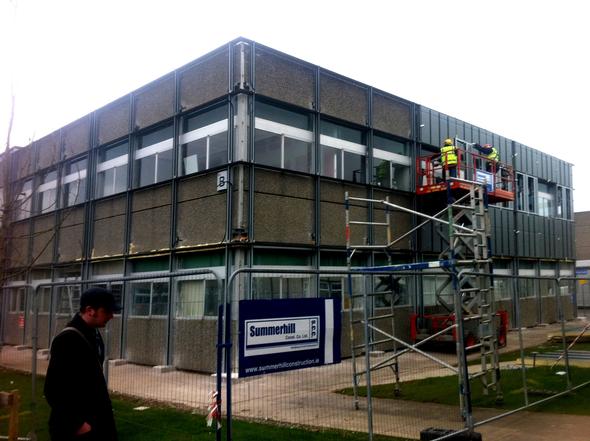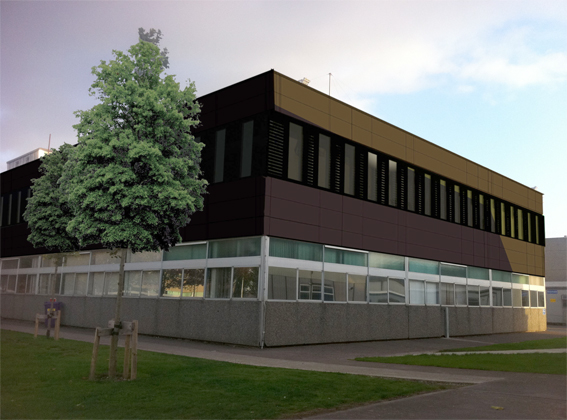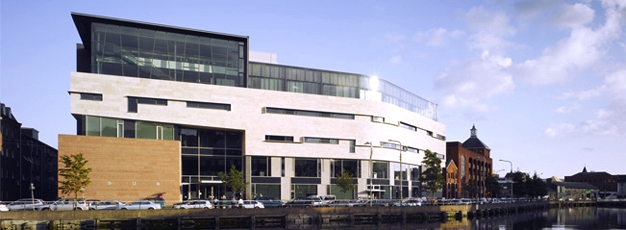CIT Zero2020 project – Zero Energy in Public Buildings

Published on: Wednesday, 07 March 2012
The Zero2020 project will upgrade approximately 310 sq metres of the original 1974 building on the Bishopstown campus, with a view to making the space as close to a passive building as possible. The ‘Mission’ for the project can be described as ‘to provide a live, controlled test bed environment to explore energy and resource performance through the use of pioneering technological solutions with emphasis on demonstrating zero energy public sector building in use operation’.
A novel solution has been developed by the project design team which will see the erection of a ‘curtain wall’ on the outside of the existing building. A highly insulated tripled-glazed building fabric (designed and developed with a number of industry partners) will be assembled in factory conditions and brought to the site for installation on to the curtain wall. The building will then be fitted with extensive technical controls to monitor and control ambient conditions, to vary technical and energy inputs and to measure building thermal performance, energy usage and environmental conditions. The project is designed in a modular fashion with the intention of providing a ‘plug and play’ capability for research in both Sustainable Energy and Building Energy Systems (two of our energy related engineering disciplines) as well as the research carried out by the Department of Architectural Technology. The project is already informing and will continue to inform plans for the upgrade and retrofit of the remainder of the 1974 building, is supported financially by the Department of Education and Skills and is being cited as a best practice project in the retrofit space by Energy@Cork.
The finished space will house both the Centre for Advanced Manufacturing and Management Systems (CAMMS) and the Medical Engineering Design and Innovation Centre (MEDIC), both Centres with significant external interactions.
Progress of the project can be followed at http://www.zero2020energy.com/ and there is an blog in progress at http://www.zero2020energy.com/apps/blog










